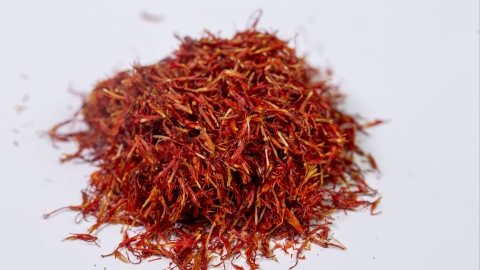Can saffron treat insomnia?
Generally, saffron can play a certain auxiliary role in improving some types of insomnia. However, it is not suitable for all cases of insomnia and mainly targets insomnia caused by emotional factors. It should not replace professional medical treatment. Detailed explanation is as follows:

The key to saffron's ability to assist in improving insomnia lies in its active ingredients such as crocin and safranal, as well as its inherent properties of relieving depression and calming the mind. When insomnia is caused by factors such as liver qi stagnation, emotional anxiety, or restlessness, these components can help regulate qi circulation, ease tension, and alleviate mental agitation caused by emotional fluctuations, thereby helping to regulate sleep patterns and improve issues such as difficulty falling asleep and light sleep.
For insomnia caused by organic diseases, environmental disturbances, irregular作息 (作息 here should be translated as "sleep-wake cycles" or "作息 patterns"), or other non-emotional factors, saffron's auxiliary effect is limited. In such cases, addressing the underlying cause is essential. Relying solely on saffron cannot fundamentally improve sleep quality, and blind dependence may delay the resolution of insomnia, affecting normal life and health.
If using saffron to assist in improving sleep as part of daily routine, it is important to first identify the cause of insomnia. When preparing saffron tea, the dosage should be controlled, and it is recommended to consume it 1–2 hours before bedtime, avoiding excessive intake. At the same time, it should be combined with maintaining regular sleep-wake cycles, creating a comfortable sleep environment, and minimizing emotional fluctuations before bedtime, to holistically regulate sleep.






